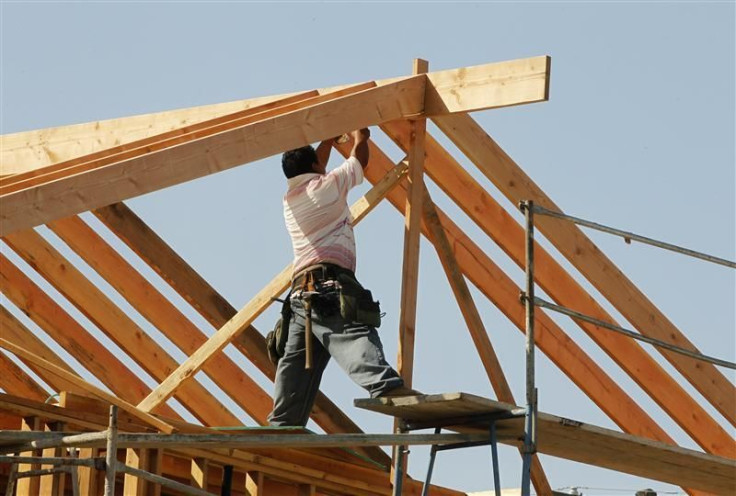Housing Starts Jump To Near Six-Year High In November

By Lucia Mutikani
WASHINGTON (Reuters) - U.S. housing starts surged to their highest level in nearly six years in November, a sign of strength in the housing market that could give the Federal Reserve ammunition to start cutting back its bond purchases.
The Commerce Department said on Wednesday housing starts jumped 22.7 percent, the biggest increase since January 1990, to a seasonally adjusted annual rate of 1.09 million units.
That was the highest level since February 2008 and only the second time since the collapse of the housing market in 2006 that starts rose above a 1 million-unit pace.
The department also said groundbreaking increased 1.8 percent in October and slipped 1.1 percent in September. The release of housing starts data for September and October was delayed because of a 16-day shutdown of the federal government in October.
Economists polled by Reuters had expected starts to come in at a 950,000-unit rate in November and set a 915,000-unit pace in October.
The report was released as Fed officials met for a second day. The housing market had slowed in recent months, a development policymakers acknowledged at the October meeting.
Some economists expect the Fed to announce a reduction in its $85 billion monthly bond-buying program later on Wednesday, although more believe it will wait until January or March.
A run-up in mortgage rates, in anticipation of the U.S. central bank tapering its monthly bond purchases, took some edge off the sector's recovery earlier in the year, but not enough to halt the process as a steady increase in household formation from multidecade lows props up demand.
Last month, groundbreaking for single-family homes, the largest segment of the market, soared 20.8 percent to a 727,000-unit pace, the highest level since March 2008.
Starts for volatile multifamily homes jumped 26.8 percent to a 364,000-unit rate.
Multifamily starts have risen strongly through the course of the housing recovery, buoyed by demand for rental apartments as still-high unemployment and stringent lending practices by bank price potential homeowners out of the market.
While permits to build homes fell 3.1 percent in November to a 1.01 million-unit pace, they were above economists' expectations for a 990,000-unit pace.
The drop in permits last month is likely to be temporary. Homebuilder confidence rose in December, with builders upbeat on current sales conditions, future sales and prospective buyers, a report showed on Tuesday.
In addition, the stock of houses on the market remains lean and the inventory of homes under construction is at a 4-1/2 year low.
In November, permits were weighed down by a 10.8 percent drop in approvals for the multifamily sector. Permits for single-family homes rose 2.1 percent.
(Reporting by Lucia Mutikani; Editing by Krista Hughes)
© Copyright IBTimes 2024. All rights reserved.
Join the Discussion





















